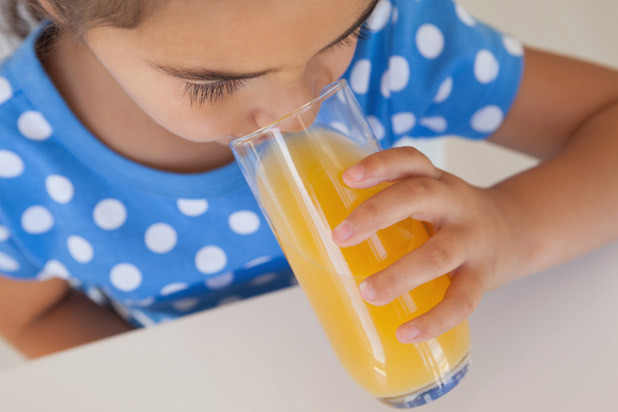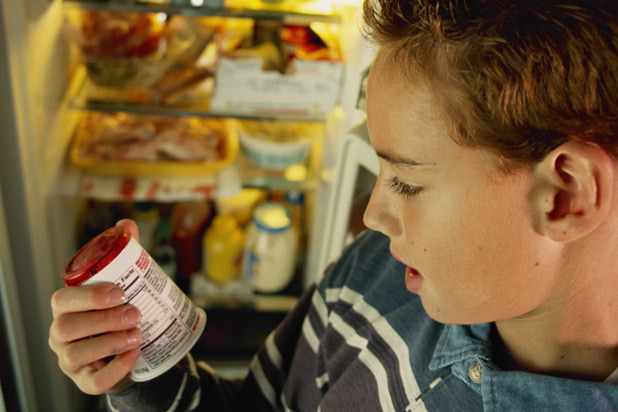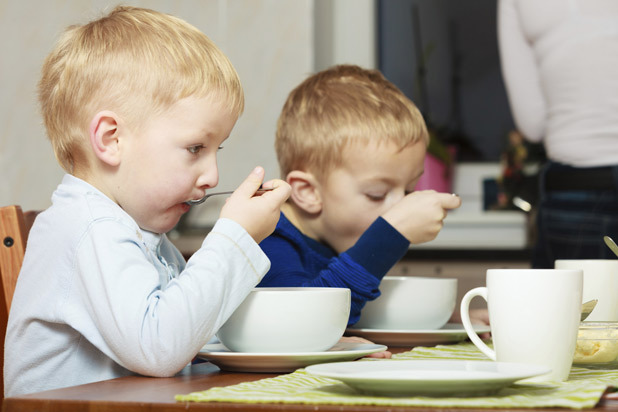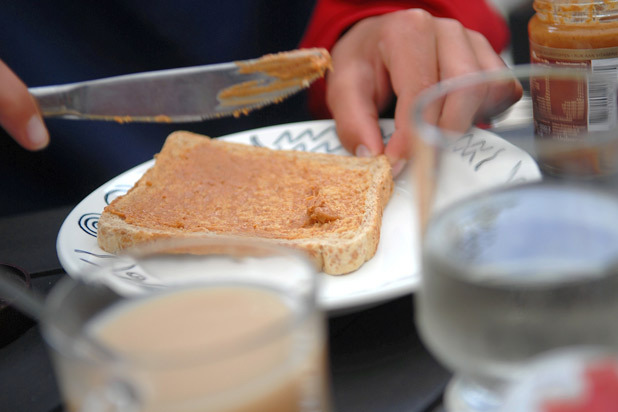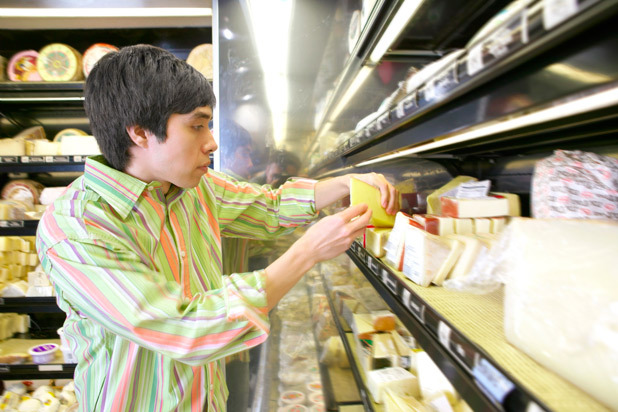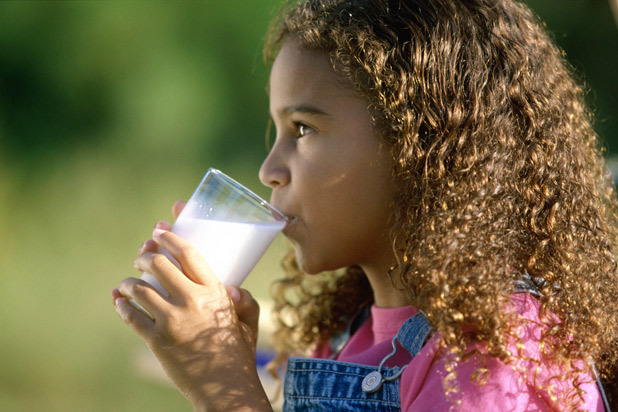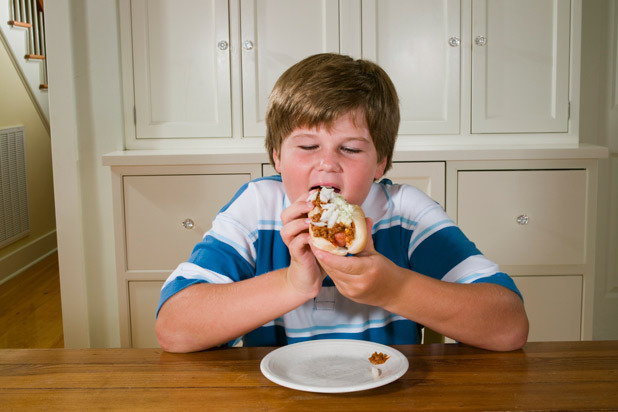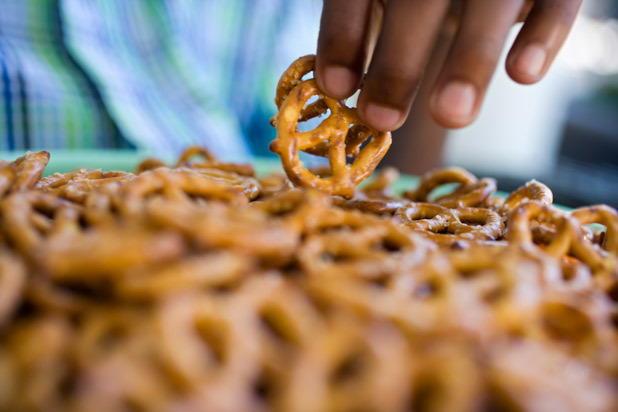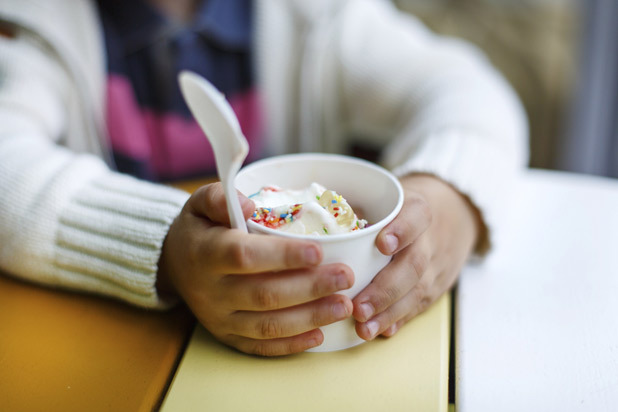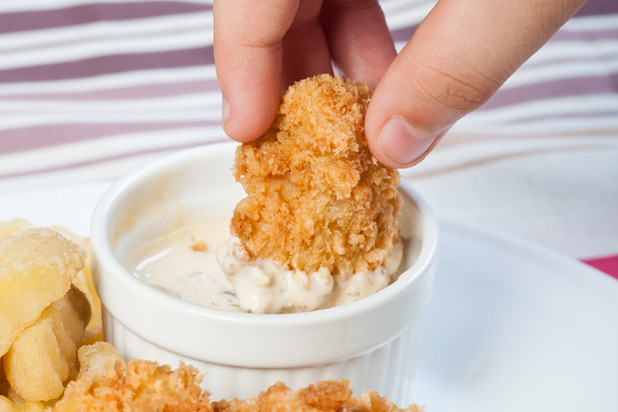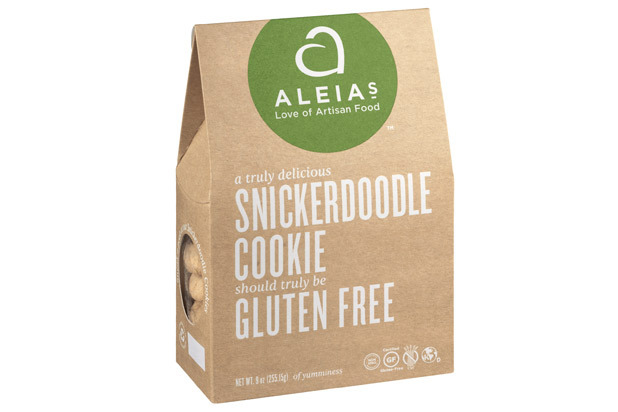12 Foods That Are Secretly Making Your Kids Gain Weight (Slideshow)
While some of these "sneaky" foods have some nutritional value, there are ingredients that could be secretly making your child gain weight, and Dr. De Silva helps us to undercover these covert culprits.
Juices
It can be difficult to get your little one to drink water, so juice has become a beverage of choice for parents. De Silva warns that "juice is a major contributor to the obesity epidemic and this is due to the hidden source of sugar and lack of fiber...Choose 100% juice and limit to six ounces per day," she tells parents. "The best recommendation is to water down juice to reduce calories and increase hydration. To reduce risk of obesity, heart disease and diabetes, limit juice altogether."
Kids’ Yogurt
Yogurt sounds like a good idea: it's packed with protein, calcium, and other nutritional benefits that make it a perfect after-school snack for kids. But yogurt flavors marketed toward kids are another story. They usually contain color additives and a lot of sugar, and that's just in the yogurt, let alone the toppings or mix-ins companies add to make them more appealing to children.
Granolas and Cereals
A bowl of colorful cereal or crunchy granola for breakfast can make getting out of the house in the morning much easier. But be warned: "Cereals can be a hidden source of sugar," says De Silva. "Most cereals marketed towards children are high in refined sugar, salt, and calories, but are low in fiber, which can lead to weight gain." She adds, "Cereals are the fourth biggest source of sugar behind sugary drinks such as soda, desserts and candy." De Silva states, "change to healthier high-fiber cereal. Fiber and protein are important in increasing the hormones that trigger the feelings of being full."
Peanut Butter
It's that magical spread found lunch boxes everywhere: peanut butter. Even though it "can actually help control satiety," De Silva recommends "everything in moderation." Peanut butter packs a nutritional punch with protein, fiber, beneficial fat and other nutrients, but some varieties have unwanted additives like sugar. "The key to weight control is portion control with peanut butter, and some limits." De Silva continues, "So, allowing more than one to two portions of peanut butter [per day] can also lead to over-consumption of calories and obesity."
Cheese
While string cheese includes calcium and protein, which are essential for growing kids, they also contain solid fats. Cheese and other high fat, high calorie foods have the potential to increase cholesterol and blood pressure levels. Offer your child low- or non-fat options.
Whole milk
Like cheese, whole milk has a ton of nutritional value. But with a high fat content, it can cause your child to gain weight. Milk products contain solid fats and are high in calories. The great thing about milk is no matter the fat content, all milks have the same vitamin and mineral content. After the age of two, the fat in whole milk becomes more detrimental than beneficial, as it adds calories to your kids' diet. One-percent or skim milk can help children maintain a healthy weight.
Hot Dogs
Picky eaters are hard to please, and sometimes hot dogs do the trick when parents are trying to get their little ones to eat dinner. Unfortunately, hot dogs are far from the best thing for kids. In fact, they might be one of the 10 worst foods for children's health. "Hot dogs are high in sodium, nitrates, and calories, which can lead to obesity if consumed regularly," Dr. De Silva says. "This is one of those foods that I put a ban on."
Pretzels
Opting to put a baggie full of pretzels in your child's lunch instead of greasy potato chips seems like a wholesome alternative. Though low in fat, pretzels are essentially refined carbohydrates and usually overloaded with sodium. These addictive snacks lack the nutritional benefits that your kids need to grow mentally and physically. Unsalted, air-popped popcorn is a smarter option, as popcorn has plenty of fiber and is a whole grain.
Frozen Yogurt
Even though some yogurts can be a super healthy snack for people of all ages, frozen yogurt is missing some of those benefits. You might think frozen yogurt is a healthier alternative to ice cream for your child, but fro-yo might actually have the same amount of fat and calories. Plus, the frozen variety of yogurt is lacking those good-for-you bacteria that promote a healthy belly.
Dipping Sauces
Sometimes parents rely on dipping sauces to make those less-than-appealing foods more appetizing for their kids, but they could be doing more harm than good. De Silva says to "avoid sauces due to sugar." Dipping sauces like ketchup, barbeque sauce, veggie dips, and especially cheese could be hiding high sugar and fat content.
Gluten Free Snacks
The gluten-free lifestyle is having a moment, so gluten-free snacks are crowding the shelves at the grocery store. These gluten-free snacks may not be all they've cracked up to be. It turns out those gluten-free pretzels or pizza dough may have a higher calorie count than the real thing. Some of the ingredients manufactures add to try to replicate the texture and taste of gluten, like brown rice flour, are actually higher in calories than what they are trying to replace.
Pasta Sauce
Pasta sauce seems healthy; it's just tomatoes and herbs, right? Wrong. Pasta sauce can actually be causing your kid to gain weight. "Sauces too, can be hidden sources of sugar," says De Silva. A quick pasta dinner is perfect for a weeknight but she recommends skipping the kind from a jar and suggests making your own instead. "For flavor, try starting with extra virgin olive oil; sauté garlic and onion and add fresh tomatoes." That way, "You control the salt and sugar."

